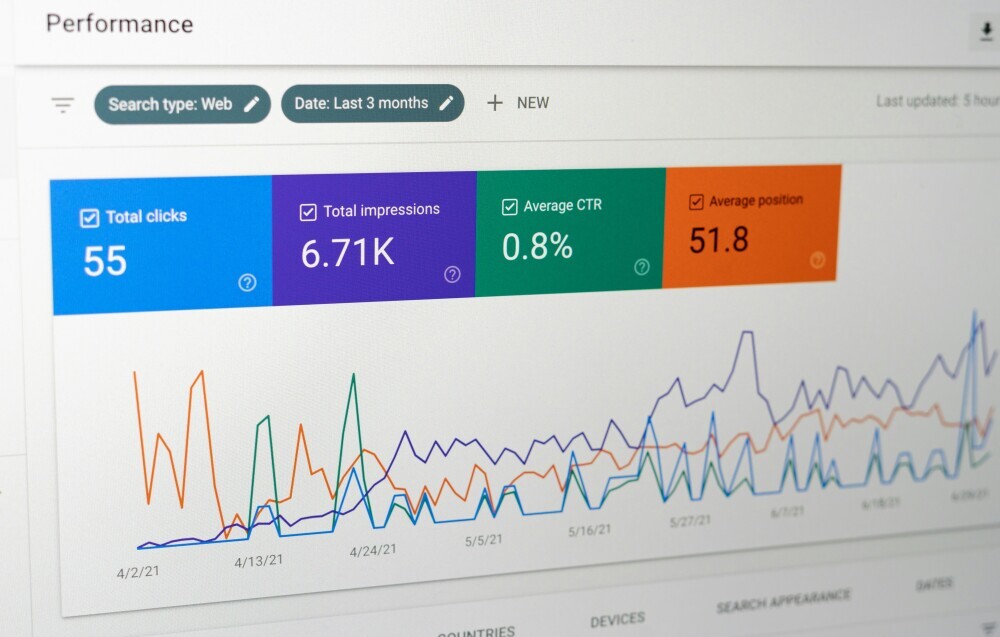Affiliate marketing is a powerful way to generate passive income and has become more popular in recent years with the increase in online shopping and internet access. There are certainly more people advertising ways to generate an online income nowadays. However, many beginners make costly mistakes that hinder their success and limit their potential income. This article lists the main common mistakes to avoid in affiliate marketing so that you can start on the right foot and learn from the mistakes of others. (Yes, we’ve all made them!) However, like anything in life, if you take the time to do your research properly, learn your trade and understand these common pitfalls and how to avoid them, you can build a sustainable and profitable affiliate business.

This article contains affiliate links.
Here are the top 10 mistakes to watch out for:
1. Choosing the wrong niche
One of the biggest mistakes people make when starting out in affiliate marketing is picking a niche without doing their research or choosing something recommended by someone else. Many beginners choose a niche solely based on something they think will make them the most money rather than something they are interested in or have some expertise in. While a high-paying niche might seem appealing, if you lack passion or knowledge about your subject, you’ll struggle to create engaging content and this will come across to your reader. Instead, choose a niche that matches your own interests, and something you are passionate about. The object is to solve problems for your audience and you will be able to do this best with a topic you are familiar with. Once you have a list of 3-4 things you love, then you can look to see which one might be the most profitable.
2. Promoting too many products
In the same vein as choosing the wrong niche, promoting too many products can be a tempting carrot! This can lead the newbie marketer to sign up for multiple affiliate programs and promote a wide range of products, many of which are totally unrelated to the niche they are in. Like promoting deckchairs to people interested in cookery, or having so many affiliate links to every conceivable product that your site resembles Amazon! This often leads to a scattered approach that confuses your audience, weakening your credibility. Instead, focus on a few high-quality products that align with your niche and audience’s needs. Even better if these are things you would really use or recommend so that you can add a personal touch to your recommendations. Becoming an expert on a select number of products and being someone whose opinion people trust, will help you gain authority and boost your conversions.

3. Ignoring your audience’s needs
This is again related to the other two mistakes. Affiliate marketing is not just about making sales – people will see through that if that is your only goal. It’s about providing value to your audience, solving a problem for them, answering their questions or giving them something they can’t get anywhere else. Many affiliate marketers fail because they push products without considering their audience’s needs. Don’t do this! Search engines like Google, Bing and Yahoo are becoming more and more sophisticated by the day. They can see through weak or repetitive content that has no value and these articles will rank poorly. Focus on solving problems, answering questions, and recommending products that will genuinely benefit your readers, and you will rank higher, driving more people to your site. Building trust should be your priority, as it leads to higher engagement and long-term success. Ignore this at your peril!

4. Not Building an Email List
One of the most common mistakes is neglecting email marketing. Relying solely on website traffic can be risky, as algorithms change and rankings fluctuate. The longer you are in the business, the more you get to understand that algorithms change quite often and these changes can play havoc with your traffic. Having an email list allows you to build a direct connection with your audience, nurture relationships, and communicate with them on a regular basis. This can then be a source of consistent sales rather than just relying on search engine traffic. Use lead magnets such as free ebooks, exclusive content, or discounts to encourage visitors to subscribe. See my article on how to build an email list and lead magnets for more information on these subjects.
5. Overlooking SEO
Search engine optimisation (SEO) is crucial for driving organic traffic to your affiliate content. Many affiliate marketers ignore SEO best practices, resulting in low visibility on search engines. Optimising your content starts with doing your keyword research using research tools like Jaaxy. By using relevant, long-tail keywords, writing compelling meta descriptions, and building high-quality backlinks. A well-optimised site will bring consistent, free traffic and improve your affiliate marketing success. You can use plugins from WordPress to do some of the heavy lifting for you here like using All in One SEO or Rank Math.
6. Relying solely on organic traffic
As we’ve already discussed, while organic traffic from search engines is valuable, depending entirely on it can limit your growth. Building a website that the search engines trust and will send people to, takes time, and search engine algorithms can change unpredictably. However, if you build your email list or make use of other ways to drive traffic to your site, such as Facebook, Instagram, Pinterest and other social media channels, you can diversify your traffic sources. Consider using social media marketing, paid advertising, and YouTube videos. Leveraging multiple channels will increase your reach and reduce your reliance on a single traffic source. No one wants to put all their eggs in one basket now, do they?

7. Not disclosing affiliate links
Transparency is key to building trust with your audience. Some affiliate marketers hide or fail to disclose their affiliate links, which can lead to a loss of credibility and even legal issues. Many regulatory bodies, including the Federal Trade Commission (FTC), require affiliates to disclose their relationship with brands. To avoid this rookie mistake, clearly state when you use affiliate links and have a visible affiliate disclosure on your site to maintain trust and stay compliant.
8. Focusing only on commissions
A common mistake of new affiliate marketers is promoting products solely for their high commission rates, regardless of their quality. This is similar to mistake number 3 – ignoring your audience’s needs. If you recommend low-quality or irrelevant products, your audience will lose trust in your recommendations and you won’t see them again for dust! Always test and review products before promoting them, ensuring they align with your niche and provide real value.
9. Ignoring analytics and tracking
Many affiliates fail to track their performance, leading to wasted efforts and missed opportunities. Analytics tools like Google Analytics, Google Search Console, affiliate dashboards, and tracking software can help you understand what’s working and what isn’t. Monitor key metrics such as keyword conversions, conversion rates, click-through rates, and traffic sources to refine your strategy and maximise your earnings. However, don’t fall into the trap either of checking things every 5 minutes. It takes time for Google and other search engines to recognise and index your site, and it takes time to index your posts too. The more quality posts you publish, the sooner the search engines will recognise the quality of your work and the value of the information for your audience. So consistency, quality and patience are key here.

10. Giving up too soon
This is one of the biggest mistakes people make and it doesn’t just apply to affiliate marketing. Many people give up a lot of things way too soon because they are either impatient or think they will never succeed. Affiliate marketing takes time, patience, and persistence. I’ll say that again. Affiliate marketing takes time, patience, and persistence. Many beginners expect quick results and abandon their efforts when they don’t see immediate success. But like most things in life, building a profitable affiliate business requires consistent content creation, audience engagement, and strategy refinement. Don’t give up at the first hurdle, nor the second or the seventieth! Stay committed, continuously learn from your mistakes, and adapt your approach and you will be successful, one small step at a time!

Legal and ethical considerations
Affiliate marketers must be aware of legal and ethical considerations to ensure compliance and maintain credibility. As mentioned, regulations such as the Federal Trade Commission (FTC) guidelines require affiliates to disclose their relationships with brands. Failure to do so can result in fines or legal action. Additionally, ethical marketing practices, such as honest product reviews and avoiding misleading claims, are essential for building trust with your audience. Always prioritise transparency, honesty, and integrity in your marketing efforts.
Where to learn about affiliate marketing
If you’re new to affiliate marketing or want to improve your skills, there are plenty of online resources available. Websites like Wealthy Affiliate, Udemy, and Coursera offer courses and training programs designed to help beginners and experienced marketers alike. YouTube channels, blogs, and forums dedicated to affiliate marketing can also provide valuable insights, strategies, and real-world experiences from successful affiliates. Investing time in learning from reputable sources can significantly improve your chances of success.
This website is the result of joining Wealthy Affiliate, learning the skills needed and setting up my own online business. If you’d like to know more, click on the link below (which is an affiliate link) and start your own journey to success.

Final thoughts
Avoiding these common mistakes can significantly improve your affiliate marketing success. Focus on choosing the right niche, building trust with your audience, optimising for SEO, diversifying traffic sources, and consistently tracking performance. With the right strategy and persistence, you can create a thriving affiliate marketing business and achieve long-term profitability. I wish you every success.
Please leave a comment below if you found this information useful, or let me know if you have further questions on this topic. I’m happy to help.

Hi Gail. Thank you for providing a fantastic breakdown of the common pitfalls in affiliate marketing! The emphasis on building trust with your audience really stood out—so many beginners focus solely on commissions and forget that credibility is key. I like that you mention not relying too much on organic traffic as I have had this issue with my own site. I found that using social media helped me through.
One thing I’d love to see more of is specific examples of successful affiliate marketers who have overcome these challenges—real-world case studies can be incredibly motivating. Thanks for a well-structured and valuable read.
Hi there. Thanks for taking the time to read and comment on the article and I’m pleased that you found it useful and helpful. Sorry to hear that you have had problems with organic traffic – it’s such a common problem and many beginners sit watching the zero screens on Google Search Console for hours. It can be very disconcerting. It’s much better to spend the time finding other sources of traffic such as through social media as you did. You can also use things like YouTube and TikTok as well, depending on the audience you are trying to attract.
If you want to see some real success stories, I suggest you have a look at Wealthy Affiliate and join as a free member. There is such as strong community there of like-minded people who are ready to help each other and share their journeys, challenges and successes. It’s how I’ve built this site. Good luck with your own journey. Gail
This is such a helpful breakdown of common affiliate marketing mistakes! It’s easy to overlook things like choosing the wrong niche or not focusing on SEO, but these really make a difference in long-term success. I also liked your point about tracking performance—many beginners skip this and miss out on optimizing their strategy. In your experience, what’s the biggest mistake that even experienced affiliate marketers tend to make, and how can they avoid it?”
Hello Hanna. Thanks so much for your comments and I’m glad you found the article interesting and useful. I agree that checking the stats is important, although it should not be done to the detriment of other things, as it’s easy to just end up sitting and watching a screen full of zeros, especially when you start out. To answer your question, I think that the biggest mistake is not writing content that appeals to your audience. You have to be able to write content that people want to read and will solve their problems, otherwise you are just writing for your own sake. There is nothing wrong with that either – as I writer, I love writing for its own sake – but that’s not the basis of a successful business. All the best. Gail